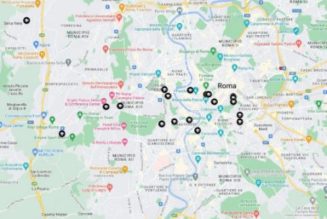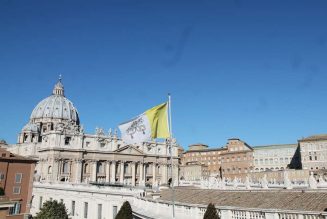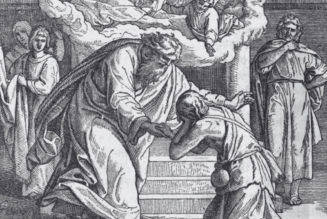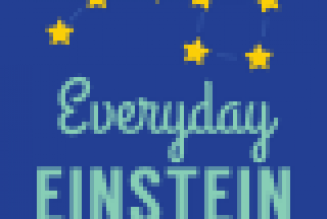
Since March 2020, “work” has become yet another victim of redefinition, as governments arbitrarily labeled businesses “essential” and “non-essential.” Such distinctions are now superseded since we’ve moved onto other crises, but inflation puts work once again front and center, as people look at their grocery store receipts.
These “non-essential” businesses were essential for the people who needed them to provide for themselves and their families. People’s livelihoods and businesses were arbitrarily trivialized and dismissed. The quality of art at a gallery might be debatable, but its owner and the artists rely on it for paying the rent and putting food on the table. Movie theaters were shuttered, and though the quality of the films is debatable, the paychecks these theaters produced were not. Luxury stores like Louis Vuitton and Dior were closed, though people who make luxury items and perfumes depend on them for their livelihood.
At the same time, idleness is now exalted as a virtue. Rep. Alexandria Ocasio-Cortez (D-NY) said in November 2020 that more lives would’ve been saved in the pandemic if people had been paid to stay at home. Evidently, she viewed work as a source of contagion. In a similar vein Justice Sonia Sotomayor referred to workers as “virus-spreading machines.”
While San Francisco shuttered art galleries, theaters and museums as “non-essential,” it instituted “guaranteed basic income” for artists, on the premise it enables them to do their “work.” It sends a mixed message. Restrictions might deem an art gallery as “non-essential” compared to a hospital or a grocery store, yet somehow the artist automatically gets a check from the city with no strings attached. Guaranteed income plans for artists expanded to Sacramento and the state of New York.
In this conflict of contradiction, the spiritual value of work has been obscured. Pope Leo XIII, in his 1891 encyclical Rerum Novarum, wrote (27):
So far as bodily labor is concerned, man even before the Fall was not destined to be wholly idle; but certainly what his will at that time would have freely embraced to his soul’s delight.
God commanded Adam to “till it (the Garden of Eden) and keep it” (Genesis 2:15). Work became toil only after Original Sin.
If we want to get to work’s basic reason and value, we need a scriptural view. We need to understand God’s viewpoint clearly laid out in the Bible.
God himself worked, in the six days of creation (Genesis 1:1-31). But why did God work? He is the Ancient of Days and does not look forward to collecting a pension. His work was not for a paycheck since he needs nothing. The Almighty did not create Yellowstone’s geysers, dramatically rend the earth at Point Reyes and sculpt the pink granite of Acadia just to become the Ultimate Influencer. He was not doing it to garner likes on Instagram or get paid by advertisers. His work is purely gratuitous.
The Almighty’s work does not look like “work” in the conventional sense. His works are beyond our mortal understanding. Sirach wonders (Sirach 42:23-25):
By his counsel he stilled the great deep and planted islands in it. Those who sail the sea tell of its dangers, and we marvel at what we hear. For in it are strange and marvelous works, all kinds of living things and huge creatures of the sea.
The Psalms and Wisdom books as well as the New Testament are full of admiration and awe for the intricacy and vastness of God’s work. Unlike man’s work, there is neither struggle nor effort. Since God is perfect, his work isn’t a burden.
As the Catechism of the Catholic Church states (CCC 293), “The world was made for the glory of God.” It also describes his work as ongoing. We see it in the changing of the seasons, the conversion of sinners, and new growth, physical and spiritual. On Australia’s Macquarie Island, for example, the Earth’s mantle is continually exposed. The Mid-Atlantic Ridge dramatically widens in Iceland. God does not treat his creation — physical and spiritual — as a finished work. There is no “final edit” until the end of time.
On the human level, we see this ongoing process in St. Paul, whose conversion inspired him to write of the “new creation.” Conversion is the Lord’s work, but in response he discusses his work. He puts tent-making as his occupation, but suffering for the Lord is a glorious work — “Gladly will I glory in my infirmities, that the power of Christ may dwell in me” (2 Corinthians 12:9). In other words, suffering for Christ is Paul’s real work.
Paul’s interpretation was true, and two millennia later, Pope St. John Paul II had another true analysis. In his 1981 encyclical Laborem Exercens, Pope St. John Paul II emphasized work from the ordinary man’s perspective. Even in his mundane routine (25), “Work is sharing in the activity of the Creator.” He described Genesis as “the first gospel of work.” God’s creation dignifies work. As John Paul II wrote, “It teaches that man ought to imitate God, his Creator, in working, because man alone has the unique characteristic of likeness to God.” When God commanded Adam and Eve to cultivate the Garden of Eden, it was a calling to imitate him.
Likewise, Pope Leo XIII warned against the idleness proposed by socialists in Rerum Novarum. He wrote (27):
If they (socialists) promise the poor in their misery a life free from all sorrow and vexation and filled with repose and perpetual pleasures, they actually impose upon these people and perpetuate a fraud which will ultimately lead to evils greater than the present.
We’re experiencing what Pope Leo predicted. Idleness fosters slothfulness, gluttony, drug abuse, mental problems and the consumption of pornography. The lockdowns with their “stay home, stay safe” mantra endangered people morally and physically.
In his Second Epistle to the Thessalonians (3:6-12) St. Paul warned against idleness by his own example. He exhorts them, “We were not idle when we were with you, we did not eat anyone’s bread without paying, but with toil and labor we worked night and day (2 Thessalonians 3:7-8).”
St. John Chrysostom, a 4th-century Church Father, in his Homily 14 on Genesis, said:
I mean since life there (Garden of Eden) was filled with every delight, was a pleasure to behold and a thrill to enjoy, He (God) arranged accordingly that the human being should till the garden and watch over it lest he be unsettled by the exceeding indulgence… If, after all, he (Adam) had been relieved of all need to work, he would have fallen victim to great indulgence and at once have slipped into sloth.
It seems there was a clearer understanding of human nature in the past. Work is essential not only for the individual, but the entire culture. Work not only elevates the man, but society. The 38th chapter of Sirach discusses workmen and craftsmen, those who tend cattle and make handicrafts, saying, (Sirach 38:31-32), “All these rely upon their hands, and each is skillful in his own work. Without them a city cannot be established, and men can neither sojourn nor live there.” He praises workmen, writing (Sirach 38:34), “But they keep stable the fabric of the world, and their prayer is in the practice of their hands.” Work provides social and spiritual stability.
Work promotes growth in the virtues, like obedience, patience and perseverance. St. Benedict had a simple motto for his order — Ora et Labora (“Work and Prayer”). Work is woven into the contemplative life, but it is woven into all our lives. We work for material and spiritual gain. Suffering is work, as is tent-making; both make us complete human beings.
As saints have noted in the centuries since, that is the honor and glory of work: to reflect and participate in God’s creation. In the words of the Psalmist (Psalm 145:16), “All thy works shall give thanks to thee, O Lord, and all thy saints shall bless thee!”
Join Our Telegram Group : Salvation & Prosperity








